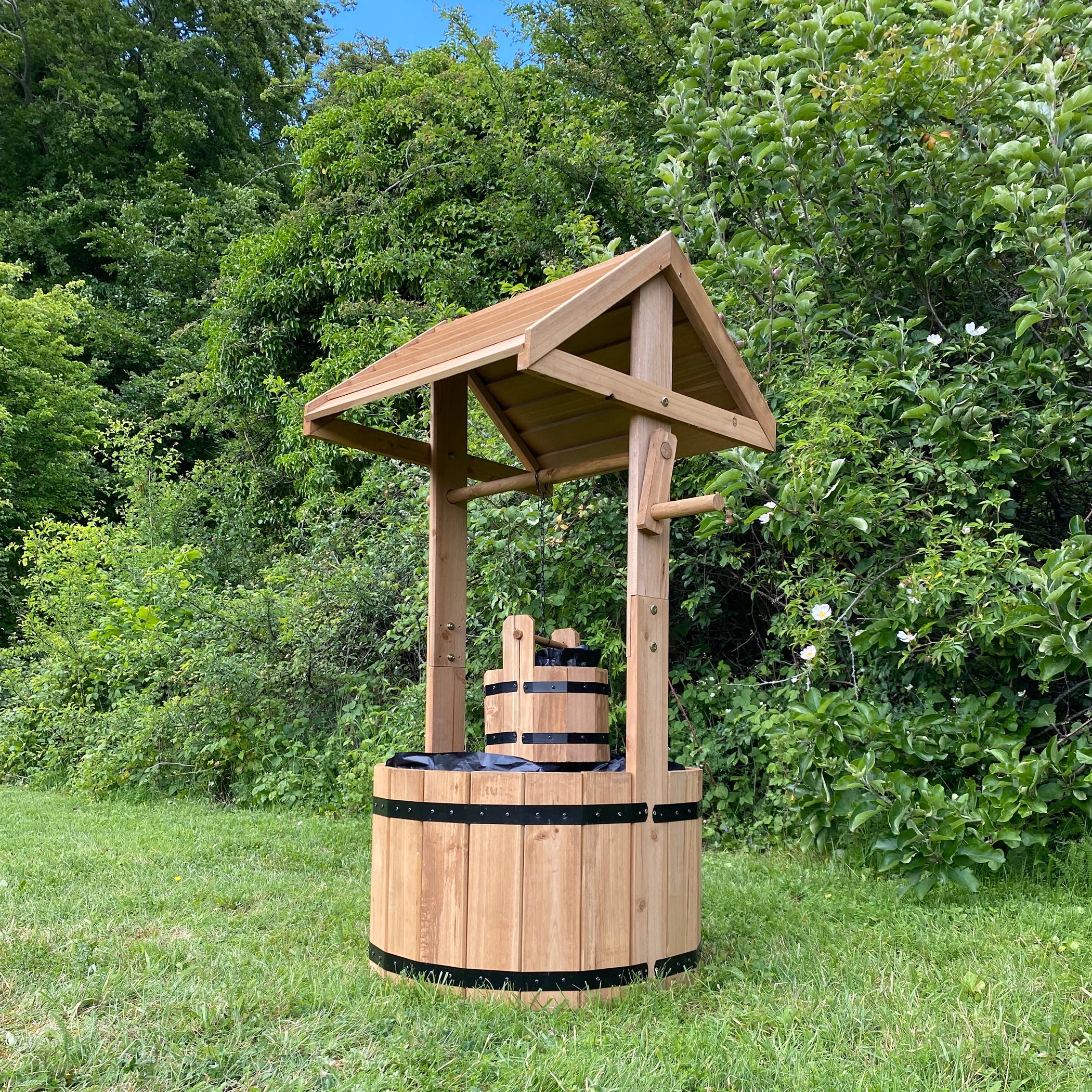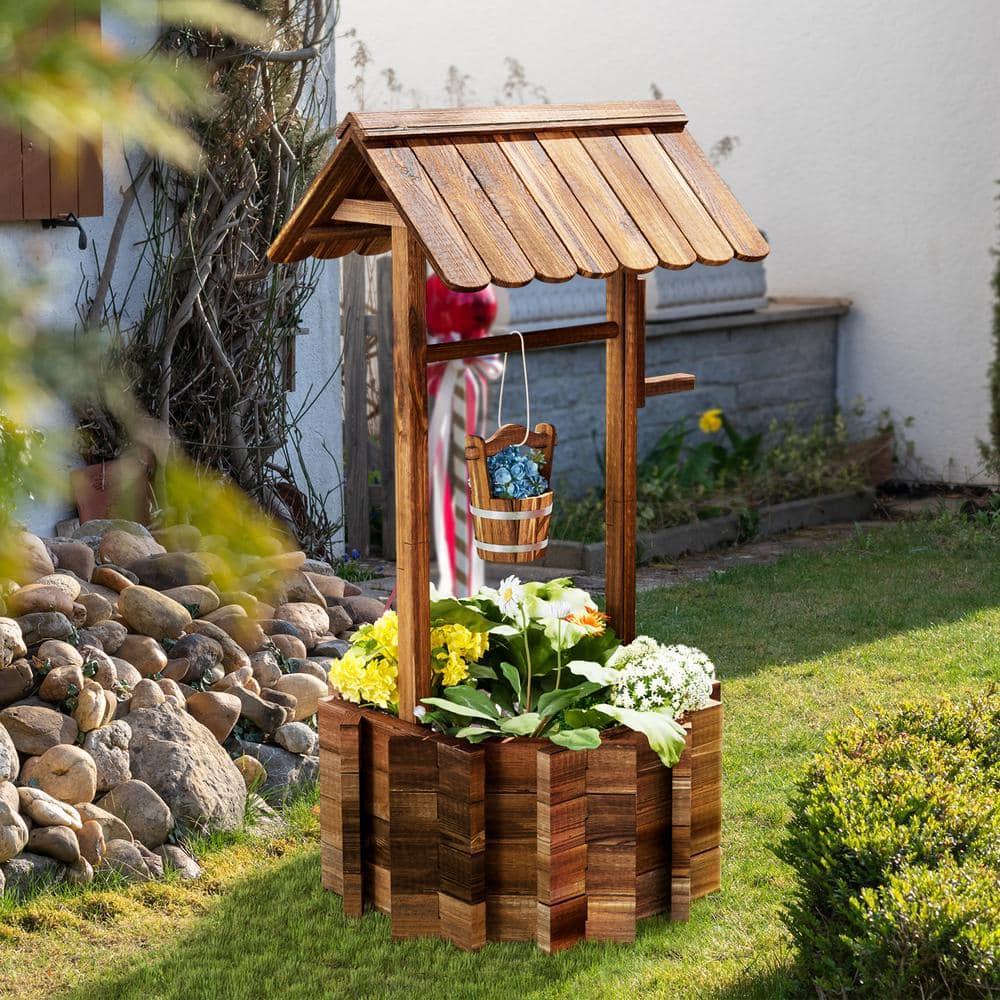Introduction to Decorative Wishing Wells
If you’re looking to add charm and whimsy to your garden, a decorative wishing well might be the perfect addition. These enchanting structures not only serve as beautiful focal points but can also create a serene ambiance in your outdoor space. As someone who has transformed my own garden with a wishing well, I can assure you, it’s more than just a decorative piece—it’s a conversation starter!
The Allure of Wishing Wells
Wishing wells have been symbols of hope and dreams for centuries. Traditionally associated with folklore, they were said to grant wishes when a coin was tossed in. Today, they serve primarily as decorative elements, but they still carry a sense of magic. In this guide, we’ll explore various aspects of decorative wishing wells, including:
- Types of Wishing Wells
- Benefits of Decorative Wishing Wells
- Placement and Design Tips
- Maintenance and Care
- FAQs about Wishing Wells
Types of Decorative Wishing Wells
Before selecting a wishing well for your garden, it’s essential to understand the different types available. Here’s a breakdown:
1. Traditional Wooden Wishing Wells
These are the classic designs that evoke nostalgia. Made from treated wood, they often feature a thatched roof and can be painted to match your garden’s aesthetic.
2. Resin Wishing Wells
Resin wells are lightweight, durable, and weather-resistant. They often come in various colors and styles, making them a popular choice for modern gardens.
3. Stone and Brick Wishing Wells
If you’re looking for a more permanent installation, stone or brick wishing wells provide a rustic charm. They are sturdy and can be customized with different stones.

4. Decorative Miniature Wishing Wells
Perfect for small gardens or patio spaces, miniature wishing wells add a touch of whimsy without taking up much space.
Comparison Table of Wishing Well Types
| Type | Material | Durability | Cost |
|---|---|---|---|
| Traditional Wooden | Wood | Moderate | $$ |
| Resin | Resin | High | $$$ |
| Stone/Brick | Stone/Brick | Very High | $$$$ |
| Miniature | Wood/Resin | Moderate | $ |

Benefits of Adding a Decorative Wishing Well
Decorative wishing wells offer several benefits that can enhance your outdoor experience:
1. Aesthetic Appeal
Wishing wells add a unique and charming element to your garden or yard, creating a picturesque atmosphere.
2. Conversation Starters
Having a wishing well can spark conversations with guests, adding a personal touch to gatherings.

3. Encourages Playfulness
Wishing wells can evoke childhood memories and encourage playful interactions, especially with children.
4. Customization Options
Many wishing wells can be customized with flowers, plants, or lights, making them versatile decorations.

Pros and Cons of Decorative Wishing Wells
| Pros | Cons |
|---|---|
| Enhances garden aesthetics | Requires maintenance |
| Encourages creativity | Can be costly |
| Serves as a focal point | May require a designated space |
| Provides a whimsical element | Not suitable for all garden styles |
Where to Place Your Wishing Well
Placement is key to ensuring your wishing well complements your garden. Here are some tips for optimal placement:
1. Near Flower Beds
Positioning your wishing well near colorful flower beds can enhance the visual appeal and create a serene setting.

2. In a Zen Garden
A wishing well can add an element of calm in a zen garden, contributing to a peaceful atmosphere.
3. Close to a Patio or Seating Area
Placing the wishing well near a seating area allows guests to enjoy the view and engage with the structure.

Creating a Themed Landscape
For a more cohesive look, consider pairing your wishing well with other garden features like birdbaths, fountains, or sculptures. This creates a harmonious design and enhances the overall ambiance.
Maintenance and Care for Your Wishing Well
While decorative wishing wells are relatively low on maintenance, keeping them in good condition ensures they remain a delightful feature of your garden. Here are some tips:
1. Regular Cleaning
Use a gentle cleanser and a soft cloth to wipe down the exterior, removing dirt and debris.

2. Seasonal Checks
Inspect your wishing well for any signs of wear, especially after harsh weather. Ensure that any wooden structures are treated to prevent rot.
3. Reinforce Stability
If your wishing well is lightweight, consider securing it to the ground to prevent it from toppling over due to wind or other elements.
Enhancing Longevity
Applying a weatherproof sealant to wooden wishing wells can significantly enhance their longevity, ensuring they withstand the elements over the years.
FAQs About Decorative Wishing Wells
1. What materials are commonly used for wishing wells?
Wishing wells are typically made from wood, resin, stone, or brick. Your choice will depend on your budget and the look you wish to achieve.
2. How much do decorative wishing wells cost?
The cost can vary significantly based on size and material. Expect to spend anywhere from $50 for a miniature resin well to several hundred dollars for larger, custom stone designs.
3. Can I make my own wishing well?
Absolutely! DIY wishing wells can be a fun project using wood or repurposed materials. There are many online tutorials to guide you through the process.
4. Do wishing wells attract pests?
If you keep the area around your wishing well clean and free from standing water, they generally do not attract pests. Regular maintenance helps maintain a pest-free environment.
5. Are wishing wells suitable for small gardens?
Yes! Miniature wishing wells are perfect for small gardens or patios, adding charm without overwhelming the space.